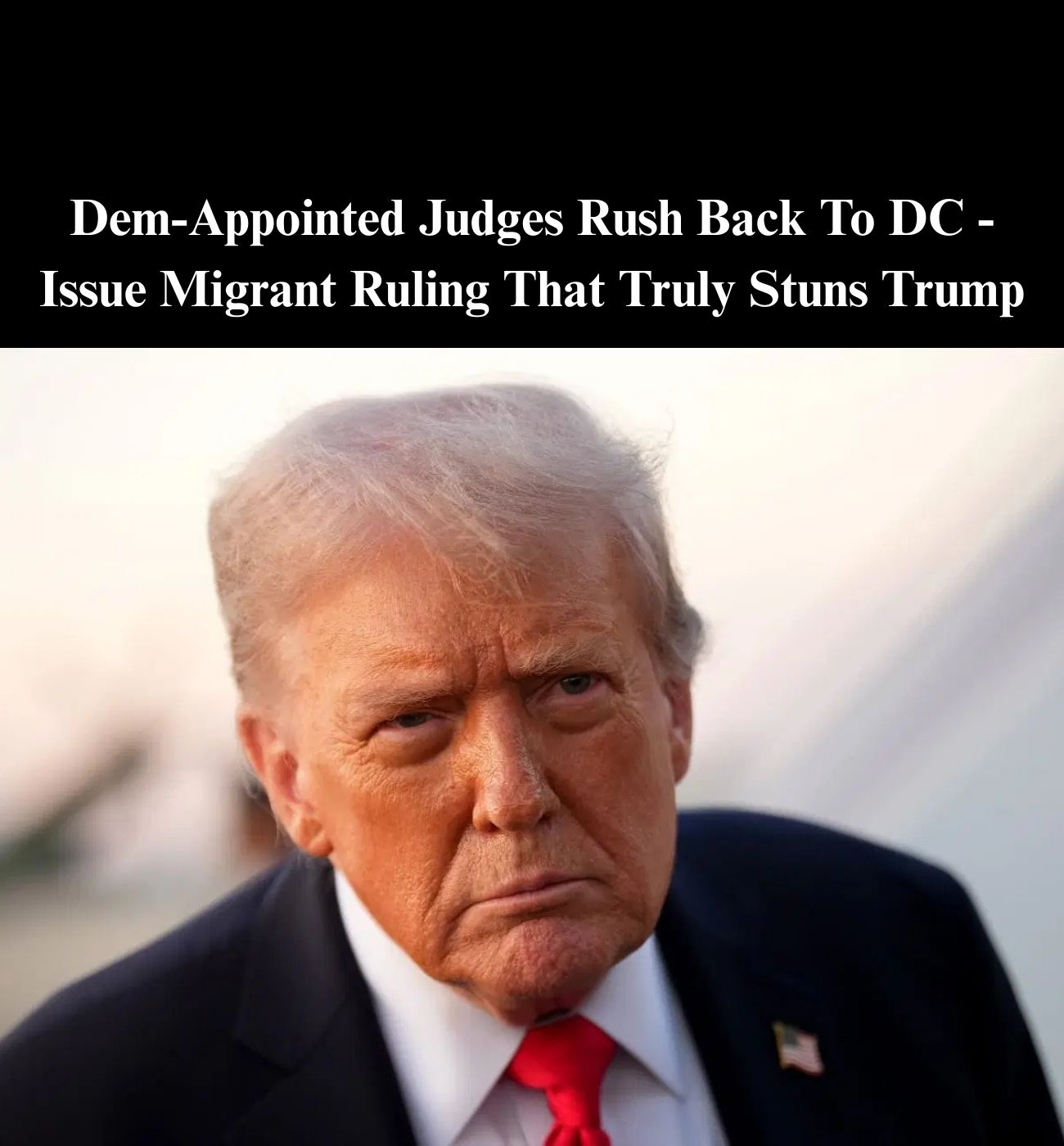A federal appeals court ruled Friday that President Trump likely has the authority to revoke Biden-era parole programs that granted temporary entry to certain migrants, overturning a lower court decision that sought to limit his power.
The three-judge panel of the First U.S. Circuit Court of Appeals — all Democratic appointees — found that federal law gives Trump broad discretion to dismantle parole programs in their entirety. The court also said the Department of Homeland Security sufficiently explained its reversal of the Biden administration’s policy.
Writing for the court, Circuit Judge Gustavo Gelpí acknowledged the ruling’s impact on roughly half a million Venezuelan, Cuban, Nicaraguan, and Haitian migrants but said Trump appeared to be acting within the law in ordering them to leave once their parole expired.
The decision marks a significant win for Trump, endorsing one of his most consequential immigration policy shifts, the Washington Times reported.
Under Biden, the parole authority was expanded to allow millions of migrants without visas or formal permission to enter the U.S. — a sharp departure from past practice, when parole was typically granted sparingly on urgent humanitarian grounds or for government needs, such as serving as a witness in a criminal trial.
Biden created broad parole programs that issued entry passes to thousands of migrants daily, arguing it was better to channel them into safer, more orderly pathways since many would attempt to cross illegally anyway. He also noted that some might later pursue asylum claims.
After taking office, President Trump directed Homeland Security Secretary Kristi Noem to end the programs and return to granting parole only in limited, case-specific circumstances.
District Judge Indira Talwani, an Obama appointee in Massachusetts, initially ruled the administration would need to revoke each individual parole case separately. But Judge Gelpí, writing for the appeals court, said the law does not require that approach.
“The district court held that the statutory text ‘contemplate[s] termination of parole on an individual, rather than categorical, basis.’ We read the statute differently,” Gelpi wrote.
The parole program at the center of the case — known as CHNV for Cuba, Haiti, Nicaragua, and Venezuela — permitted migrants to enter the U.S. if they secured a financial sponsor and agreed to arrive through airports rather than crossing the border.
Other Biden-era parole initiatives allowed migrants gathered in northern Mexico to enter through the southern border if they pre-scheduled their arrivals. The administration also used parole to admit tens of thousands of Afghans and Ukrainians fleeing turmoil in their home countries.
Immigrant rights groups criticized the appeals court ruling, warning it could jeopardize all of these programs.
“This ruling is a devastating blow to hundreds of thousands of lawful immigrants and their U.S.-based sponsors who welcomed them into their homes and communities, but this is not the end of our legal fight,” said Anwen Hughes, legal director of Human Rights First, per the Times.
Earlier this month, a Biden-appointed judge halted the Trump administration from deporting a group of Guatemalan migrant children who had already been placed on planes, along with potentially hundreds more in government shelters, after lawyers filed an emergency appeal.
The last-minute court order echoed earlier Trump-era immigration battles that played out in dramatic, late-night fashion, Reuters reported.
District Judge Sparkle Sooknanan, who was notified of the case around 2:35 a.m., issued a temporary restraining order halting deportations for 14 days. The ruling applied not only to the 10 children but to any Guatemalan unaccompanied minors currently in U.S. government custody — a group that could number in the hundreds.
Later, a government lawyer confirmed that children placed on flights were removed and returned to the Office of Refugee Resettlement.
Trump, who launched a broad immigration crackdown after retaking the White House, struck an agreement with Guatemala to allow deportations of unaccompanied minors and had planned to begin removals at the beginning of the month.
